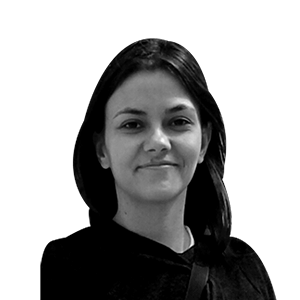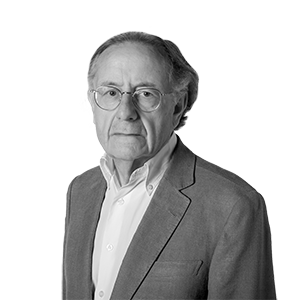Who are the most likely names to become the new pope?
The College of Cardinals faces the pastoral and geopolitical decision of following Francis' reformist path or turning to the right.


RomeDuring his pontificate, Pope Francis reformed the composition of the body that will decide his successor, increasing the representation of cardinals from Africa and Asia, in line with the distribution of the faithful of the Catholic Church. With this composition, it is more difficult to predict the vote of the new dioceses. The chosen cardinal will be someone with the skills, experience, and personality necessary to assume leadership of the Roman Catholic Church. Age is also another factor, because in recent conclaves, older popes have been chosen to ensure shorter pontificates.
The most popular names
If there's one name that appears in every poll, it's that of Filipino Cardinal Luis Antonio Tagle, Archbishop of Manila. The Pope approached him at the Vatican by appointing him Prefect of the Congregation for the Evangelization of Peoples, formerly known as Propaganda Fide, in 2019. His mother is of Chinese origin, and analysts consider him one of the most likely candidates to be the next occupant of the Chair of St. Peter. If this prediction proves true, Bergoglio would become, after his death, the best intermediary for building definitive bridges with the Catholics of Asia. Tagle is charismatic and shares Francis's progressive vision of the Church.
What could work against him is his age: he will turn 68 in June, which in principle means that his papacy could potentially be very long. On the other hand, in a global context of radicalization toward the right and the extreme right, both in Washington and Buenos Aires and many European capitals, the Catholic Church can become an important counterweight.
Another Filipino candidate who also shares Pope Francis' vision of the Church is Cardinal Pablo Virgilio Siongco David. A staunch defender of justice, he received death threats and was accused of criminal charges in his homeland for speaking out against the massacres of the Rodrigo Duterte regime's war on drugs. Known by the nicknameBoth either Apu Ambo, what does it mean Grandpa Ambo, embraces the idea of an inclusive church that would be like a "field hospital" for the wounded.
The Italian wing
Pietro Parolin is another of those considered papal candidates, aged 70. He was Francis' number two as Vatican secretary of state, since his appointment in 2013 to replace fellow Italian Tarcisio Bertone, Benedict XVI's right-hand man, who was removed when he was implicated in the scandal of leaked documents in the so-called Vatileaks case. Parolin is the second-youngest Vatican secretary of state in the history of the Holy See, behind Cardinal Eugenio Pacelli, who later became Pope Pius XI.
His diplomatic career has taken him to Asia and the Middle East, and he has been actively involved in the delicate relations between the Holy See and countries such as Israel, Vietnam, and North Korea. In 2009, he was appointed Hugo Chávez's nuncio to Venezuela. And for the past three years, he has been Francis's choice to attempt to mediate between Russia and Ukraine. In an increasingly turbulent world, his experience could restore to the Church of Rome the geopolitical influence it seems to have lost in recent years.
Another great option for Italian progressives is Matteo Maria Zuppi, current president of the Italian Episcopal Conference, who has a similar profile to Jorge Bergoglio, due to his attention to the most disadvantaged and migrants. He is also very close to the powerful lay community of Sant'Egidio. Zuppi has solid diplomatic skills, recognized by Pope Francis when he asked the cardinal to lead the peace mission to Ukraine in 2023.
Europeans for all tastes
Another European who resonates is the Archbishop of Marseille, Jean-Marc Aveline, 66, who has gained considerable popularity recently, especially after convincing Francis to visit the French city to discuss migration. His profile is reminiscent of the first Bergoglio, affable and cultured, dedicated to issues of the "peripheries," interreligious dialogue, and migration, a sensitivity also acquired through his childhood in a family belonging to French repatriated after 1962, at the end of the Algerian War. His relatively young age could be a point against him.
The Archbishop of Budapest, Péter Erdő, 72, is one of the most important options for the conservative and European wing. Raised in communist Hungary, his family had to flee the country when he was four years old, in 1956. Considered a great intellectual, he is staunchly pro-life, opposes optional celibacy for priests, and opposes the acceptance of same-sex unions, defending the values of Christian Europe. His good relationship with Viktor Orbán's anti-immigration government could be a negative point.
The 75-year-old Bishop of Stockholm, Anders Arborelius, is Sweden's first cardinal. He converted to Catholicism in a country with an overwhelmingly Protestant population and one of the most secularized societies in the world. Unlike Francis, Arborelius opposes allowing women to be deacons and the blessing of same-sex couples. But he is in favor of welcoming immigrants to Europe.
Jean-Claude Hollerich, the 66-year-old Archbishop of Luxembourg, is the president of the European Bishops' Conferences and general rapporteur of the synod. He is a powerful figure in the Catholic Church, but, like Bergoglio, he is a Jesuit. Something that could work against him in the face of an election by the other cardinals.
Even younger is José Tolentino de Mendonça, a 59-year-old Portuguese cardinal. He is an intellectual with progressive views, who also writes poetry and has been linked to Bergoglio in recent years. He was archivist and librarian of the Catholic Church between 2019 and 2022 and subsequently served as prefect of the Vatican's Dicastery for Culture and Education.
The Conservative Options
But in recent months, the name of Fridolin Ambongo, a cardinal from the Democratic Republic of Congo, also seems to have been quite popular. He is the only one of those mentioned who criticized some of the reforms promoted by Francis, such as the blessing of same-sex couples. His rejection of Bergoglio's new orientation made him one of Müller's leaders. The most prominent voices in this sector, Ambongo and Müller, had redoubled their attacks on Francis, protected by a web of propaganda media that helped spread their messages.
of the Catholic Church, along with the 76-year-old American Raymond Leo Burke, was one of the most critical voices of Pope Francis.
Although they seem increasingly isolated within Vatican structures and are a minority in a conclave, traditionalists remain very present, especially through the powerful United States Conference of Bishops, which has gained new momentum with the arrival of Donald Trump to the White House.
133 cardinal electors
The College of Cardinals is made up of 252 cardinals, but only 133 have the right to vote: those under 80 years of age. Of these, 110 were appointed during Francis's pontificate, representing approximately 80% of the total electors. However, this does not mean that the elected pope will be a representative of the more progressive sector, who would take over from Francis. Furthermore, considering that Pope Francis expanded the geographical diversity of the College of Cardinals, including cardinals from 71 countries, any prediction is quite complex.
The new pope must be elected by two-thirds of the eligible electors. In principle, and despite the fact that traditionally only about 120 cardinals vote, if all 133 participate in the conclave, 89 will be needed for a white smoke to form.

